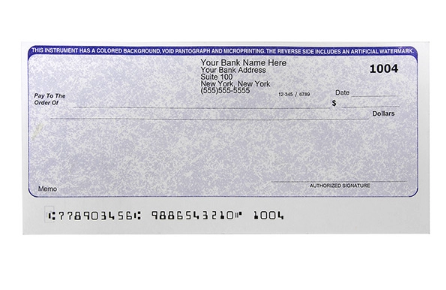
Well, before the arrival of the Coronavirus, clients have trusted PayTech as a strong partner for their Payroll, HR, and Tax filing compliance. We understand that our services are mission-critical to your business.
Every company has issues with payroll security. The most effective companies, though, are those that take these issues seriously and take steps to ensure that small problems won’t lead to major fallout. Below are a handful of the most common payroll issues encountered by businesses of all sizes, ranging from those problems caused by a human element to those that depend upon electronic aid. Once you can identify the most common problems, you can begin to look at your business’ own activities to determine the changes that need to be made.

Getting payroll efficiently processed is important. That’s why many businesses have dedicated payroll departments staffed by trusted individuals. It can be a mistake, though, to put too much trust in any one person. Even if you haven’t seen anything that would make you suspicious, a lack of oversight when it comes to payroll is asking for trouble. You are not only giving a single person or group of people too much power over valuable information, but you are also not giving those employees the benefit of a safety net when it comes to making small but devastating mistakes.
You don’t have to treat your payroll employees with suspicion to give the proper amount of oversight. Instead, you must merely make sure that more eyes are involved in the process. Adding a second employee to a single-employee payroll department halves the workload, puts another pair of eyes on problems, and removes the temptation to alter data. Having a supervisor available to audit payroll data from time to time not only keeps everyone honest, but it also helps to catch mistakes that could cost the company money. If you can spare the manpower, extra oversight will ensure fewer payroll problems.
How much information is printed on your employee’s paychecks? If you’re adding more data than necessary to a check, you are actually committing one of the cardinal sins of payroll security. A paycheck should include absolutely no more personal data than is necessary, even if your company has made it decades printing personal information on checks without problems. You’re attempting to head off issues at the pass, and that means taking a careful look at what your checks look like and how they could be made more secure.

The easy way to beef up your security is by removing information. If your company prints addresses, social security numbers, or employee identification numbers directly on your checks, make sure to change the process. If you absolutely must have employee information on a check, make sure that it’s the kind of information that won’t put either your employee’s personal information or your business’ payroll information at risk. This might mean only printing the last few digits of an employee identification number or social security number, but rest assured – it can make a big impact. Your goal should be to ensure that a single lost check cannot lead to your entire payroll database becoming compromised. By removing excess information, you will keep both your data and your employees safe.

Unfortunately, employees can be a major source of payroll insecurity. This is rarely, however, due to any conscious attempt to defraud the company or to cause problems. Instead, it is because employees can act as a gatekeeper to information and those who would attempt to access it illegally target them. Common payroll security issues like phishing and social engineering scams run rampant on the internet and it only takes one employee to mistakenly click on the wrong link or give out the wrong information. When this occurs, your entire payroll database can be left vulnerable.
The easiest way to deal with this type of security issue is to keep your employees educated. Make sure that everyone who works for you goes through a basic information security course as part of orientation and continue to send out reminders to avoid giving out information over the phone and to never click on a link from an unknown source. The more you teach your employees, the more they’ll be able to help protect your company from data loss. While there will always be sophisticated attempts to access data that might slip through the cracks, you can put a stop to some of the more obvious attempts.
Information security is, admittedly, an expensive proposition for a small business. When you make the assumption that you’re small enough to fly under the radar, it can be easy to stick with the tools that won’t cost you any money. Unfortunately, relying upon outdated tools can be a great way to ensure that your payroll data is stolen. Too many businesses are making use of old, outdated and otherwise obsolete tools to protect data that absolutely deserves more protection. If your business hasn’t updated the way it protects its data, there’s a good chance that you’ve inadvertently left it vulnerable to attack.

Dealing with outdated security doesn’t have to be terribly expensive. In many cases, making sure that all of your software is updated and patched to include recent fixes will keep you safe from most problems. If you want to keep your payroll data safe, simply make sure that you are actually using all the tools you have in place. It may require a little extra work and a few more IT hours, but doing so can save your business’ money and reputation if someone attempts to maliciously access your systems.
Finally, the most frightening security issue is that of external targeted attacks. While outdated security can make your company a target of opportunity, it’s entirely possible that your business will be directly targeted by unscrupulous individuals who want access to your company’s payroll information. Malicious attacks are becoming more common in the business world, with even small businesses being targeted by international data thieves. While you cannot do anything to stop these attacks from occurring, you can mitigate their impact by acknowledging their existence.
FEvery business should have a plan for dealing with cyber-attacks. This might mean getting better data security practices in place early on or making sure that you have a way to deal with a ransomware attack, but it’s vital that a plan of some sort is ready. The more scenarios for which you have a plan in place, the better. If you can ensure that you know what’s out there, you can make sure you’re able to deal with attacks if and when they occur.
FThe most effective way to deal with these common payroll security issues is to be aware. Putting the right safeguards in will help your business, but nothing is more effective than making sure that everyone knows that security issues can and often will occur. If you are ready to see how your business’ efforts stand up to real-world problems, make sure to contact PayTech for your free security audit today.